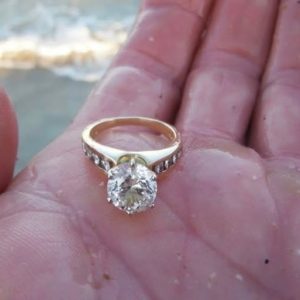Three failed beauty pageant participants have joined a feminist group that is suing Miss France for alleged discrimination based on the appearance of the contestants. The three women have joined the “Osez le feminism” (Dare to be a Feminist) group and made it clear that their lawsuit will be targeting the beauty pageant as well as Endemol Production, which produces the contest’s annual television presentation on the TF1 channel.
The three former contestants did not win. Afterward, they started working with the feminist organization to file a complaint against Miss France since their other methods of being heard did not amount to much. The lawsuit claims that Miss France is breaking French labor laws by demanding that beauty queens be single, at least 5-feet 5.5-inches feet tall, and a “representative of beauty.” Women who want to participate in the beauty contest must not have body piercings anywhere, but their ears and are under no obligation to lose weight or change their hairstyles.

In the past, contestants were eliminated from the beauty pageant for doing anything that was deemed “contrary to good morals, to public order or the spirit of the contest, which is based on the values of elegance.”
Labor laws in France forbid employers from discriminating based on “morals, age, family status or physical appearance,” Violaine De Filippis-Abate, a lawyer for Osez le feminisme, told AFP. The beauty pageant discriminates on all of those things and more.
The lawsuit could prove successful if magistrates determine that the beauty pageant and the forementioned TV company are employers or not. If they are considered employers, then they will be in direct violation of French labor laws. If the beauty contest is not considered employment, they may be able to continue doing what they are doing.
Contestants do not sign an employment contract. However, the plaintiffs in the suit have found a supportive judgment in 2013 made by a former contestant claiming they received similar mistreatment by the French beauty pageant.

Miss France turned one hundred years old this year. Critics argue that the beauty pageant is antiquated and is a leftover sexist event from a different era in French culture. Nevertheless, the beauty pageant is still a very popular television program in France. Millions of people tune into TV channel TF1 in December to see the final national vote to reveal the winner.
“For all our protests every year against this vehicle for sexist values, nothing changes,” said Alyssa Ahrabare, head of the Dare to be Feminist group. “We have decided to use the law to advance the cause of women.”

When contacted for comment by the media, the Miss France organization did not want to comment. It is currently run by 2002 Miss France winner Sylvie Tellier (pictured above). She insisted to Daily Telegraph that the contest promotes women’s rights.
“You can parade in a swimsuit and be a feminist. We are no longer in the days of ‘look beautiful and shut up,’” Tellier said.
The three former contestants involved in this case have not been named.
Meanwhile, Miss France claims that it has moved on from its sexist past – although contestants are still expected to present themselves on stage dressed in swimsuits and ballgowns.



